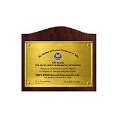

Hair Growth After 50: What Changes and What Helps
As you grow older, it’s completely normal to notice changes in your hair. It might feel thinner, look duller, or grow more slowly than it used to. In fact, available data shows that around 38% of women over the age of 50 experience significant hair thinning, and nearly 50% of men over 50 face some degree of hair loss. Still, with the right care and a bit of awareness, it is possible to keep your hair healthy and strong. Take a look at this article to learn what causes these changes anways to help maintain hair growth.
What Happens to Your Hair as You Age?
For women wondering at what age hair growth stops in females, the answer isn’t a fixed number, but changes often begin around the time of menopause, usually in the late 40s or early 50s. Here are some changes you might notice:
• Thinning hair across the scalp results in a reduction in hair density.
• After a certain age, the scalp produces less oil, which can cause hair dryness.
• The hair growth rate declines with age, making it difficult to regain lost volume.
• Your hair starts turning grey or white due to reduced melanin.
If you understand the natural changes in your hair health, you can easily adapt to a routine that matches your hair care needs. Staying informed about topics like nutrition, self-care, and even health insurance can contribute to better overall well-being.
Why Do You Lose Hair as You Age?
Here are a few common reasons why you may start to lose more hair as you get older:
1. Genetics:
Genetics play a major role in age-related hair loss. This condition is called androgenetic alopecia (commonly known as male or female pattern baldness). It can determine how early hair loss begins, the rate of loss, and the pattern it follows.
2. Hormonal Changes:
Both male and female hormones play a role in hair growth. After menopause, the body produces less oestrogen and progesterone. These hormones help support hair growth, so when their levels decline, many women notice their hair becoming finer or thinner over time. On the other hand, high levels of DHT (dihydrotestosterone) can cause hair follicles to shrink in men.
3. Nutritional Deficiencies:
If your body is deficient in iron, vitamin D, protein, zinc, and biotin, it can contribute to hair loss. The hair follicles require adequate nutrients to stay active and healthy.
4. Medical Conditions:
Conditions like thyroid disorders (especially hypothyroidism), autoimmune diseases such as alopecia areata, and polycystic ovary syndrome (PCOS) can affect hair health. Certain medications, like chemotherapy drugs, antidepressants, and blood pressure medications, can also trigger hair loss.
5. Stress:
Chronic stress can trigger telogen effluvium. It is a condition where hair prematurely enters the resting (telogen) phase and falls out more than usual.
How to Care for Your Hair as You Age?
To promote better growth and strength, you can follow these tips:
1. Nourish Your Hair Deeply
• Eat a balanced diet rich in zinc, omega-3 fatty acids, iron, and biotin.
• Consume more leafy greens, nuts, seeds, and lentils in most of your meals.
• Keep a bottle nearby and stay hydrated as much as possible, as dryness can also affect the scalp.
2. Pamper Your Hair with Gentle Hair Products
• Use sulphate-free shampoos and hydrating conditioners.
• Avoid harsh dyes and excessive chemical treatments.
• You can opt for products with collagen, keratin, or peptides to help with hair structure improvement.
3. Try Hair-friendly Styling
• Try to avoid using blow dryers, straighteners, and curling irons too often, or at least limit how frequently you use them.
• Choose air drying or low-heat settings where possible.
• Avoid tight ponytails or buns that strain your hair roots; instead, opt for simple and stylish hairstyles.
4. Pay Attention to Your Scalp Too
• Gently massage your scalp for 5-10 minutes daily to boost blood circulation.
• Use light oils, such as coconut or argan oil, once a week.
• Keep your scalp clean to avoid buildup from excessive product use.
5. Stay Active and Reduce Stress
• Exercise regularly. It improves blood flow and helps nourish hair follicles as well.
• Practice yoga or meditation to help you maintain a peaceful mind and manage your stress levels.
• Prioritise healthy lifestyle habits, which often reflect in your hair’s condition too.
6. Go for Medical Help if Needed
• If hair thinning is rapid or patchy, it’s high time you consult a dermatologist.
• In some cases, doctors may suggest clinical therapies or topical treatments.
• Always go for medical advice from trusted healthcare providers. If you’re over 60, having a reliable senior citizen health insurance plan can make access to specialised care and treatments more affordable.
Conclusion
Since you know hair growth rate by age declines, you can embrace the changes and give your hair what it needs now. With small tweaks to your routine and gentle care, you can continue to have fuller hair. Paying attention to overall wellness, including areas like health insurance, can support a more holistic approach to healthy aging.
Source: AARP.org, WebMD, Healthline, Health.Clevelandclinic
Disclaimer: This blog provides general information and discussions about health and related subjects. The information and other content provided in this blog, website or in any linked materials are not intended and should not be considered, or used as a substitute for, medical advice, diagnosis or treatment. Kindly contact your Doctor before starting a new medicine or health regime.
Related Articles
Herbal Remedies for Hair Growth
Tips to Boost Hair Growth After Age 50
Superfoods To Naturally Revive Your Dull Locks
12 Ways to Stop Receding Hairline
Rogaine for Hair Growth: How It Works and Key Usage Tips
Published on July 16, 2025















 Health Insurance
Health Insurance  Travel Insurance
Travel Insurance  Car Insurance
Car Insurance  Cyber Insurance
Cyber Insurance  Critical Illness Insurance
Critical Illness Insurance
 Pet Insurance
Pet Insurance
 Bike/Two Wheeler Insurance
Bike/Two Wheeler Insurance  Home Insurance
Home Insurance  Third Party Vehicle Ins.
Third Party Vehicle Ins.  Tractor Insurance
Tractor Insurance  Goods Carrying Vehicle Ins.
Goods Carrying Vehicle Ins.  Passenger Carrying Vehicle Ins.
Passenger Carrying Vehicle Ins.  Compulsory Personal Accident Insurance
Compulsory Personal Accident Insurance  Travel Insurance
Travel Insurance  Rural
Rural